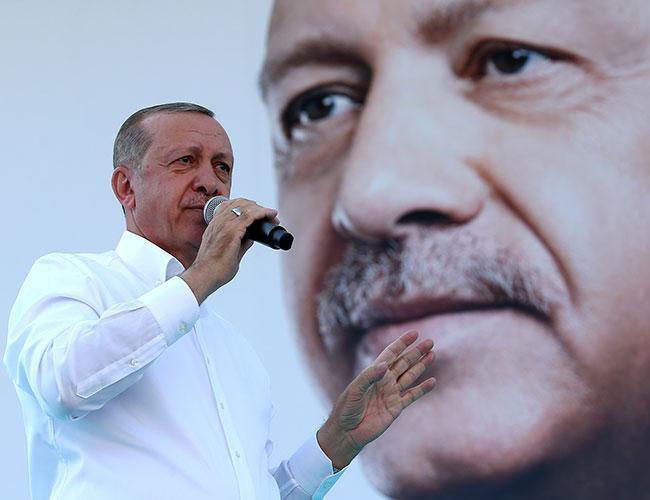
Turkish President Recep Tayyip Erdoğan on June 9 criticized Austrian Prime Minister Sebastian Kurz for his government’s decision to shut down seven mosques and expel 40 imams, warning of a “crusader-crescent war.”
“I am afraid that the steps taken by the Austrian prime minister would bring the world closer to a crusader-crescent war,” said Erdoğan during an iftar fast-breaking meal organized in Istanbul.
He added that Turkey would also “respond” in due course to the decision to expel imams.
Erdoğan’s remarks were a response to the measures announced by Kurz on June 8 to expel several foreign-funded imams and shut seven mosques in a crackdown on “political Islam.”
Kurz said that the investigation on several mosques and associations conducted by the Ministry of Interior and Office of Religious Affairs had been concluded and that the activities of seven mosques were found to be forbidden, one of them belonging to the Turkish-Islamic Cultural Associations (ATIB).
The Austrian chancellor added that the imams would be deported on grounds of being foreign funded.
“Parallel societies, political Islam and radicalization have no place in our country,” Kurz said.
The mosque in question was run by the ATİB in Europe, based in the German city of Cologne, and a branch of Turkey’s Religious Affairs Directorate (Diyanet).
Tensions run high between Ankara and Vienna
Prime Minister Binali Yıldırım also slammed the Austria’s decision to close the mosques.
“It is quite wrong. It neither suits universal legal rules nor the EU’s values nor the migrants’ law,” Yıldırım said on June 8.
Turkey’s Foreign Ministry issued a statement denouncing the decision.
“We condemn Austrian politicians, especially Chancellor Kurz, for trying to achieve political interest from these alarming developments, rather than fighting against racism, Islam and xenophobia and the rise of the extreme right,” said the ministry on June 8.
Ties between Ankara and a number of European countries were hit in 2017 ahead of the controversial April 2017 referendum on shifting to an executive presidential system, with many Turkish politicians not permitted to hold pre-scheduled meetings.
Ahead of that referendum, Turkish ministers sought to drum up support in countries with large Turkish communities, like the Netherlands and Germany. Those countries imposed bans on security grounds that angered Istanbul, and Erdoğan and some of his allies at the time compared the German government to “Nazis.”
For the parliamentary and presidential elections coming up on June 24, Sarajevo became the only campaign stop for the longtime ruling Justice and Development Party (AKP) and Erdoğan as governments in Austria, Germany and the Netherlands said they would not allow rallies for the Turkish elections this time around as well.
Turkey strongly criticized the bans and said the moves were “racist” and “undemocratic.”
Several hundred thousand people in Austria are Turkish or of Turkish origin.
Kurz’s conservatives are in a coalition government with the anti-Islam Freedom Party, making Austria the only Western European country to have a far-right party in government. Both parties believe the EU should break off Turkish accession talks.